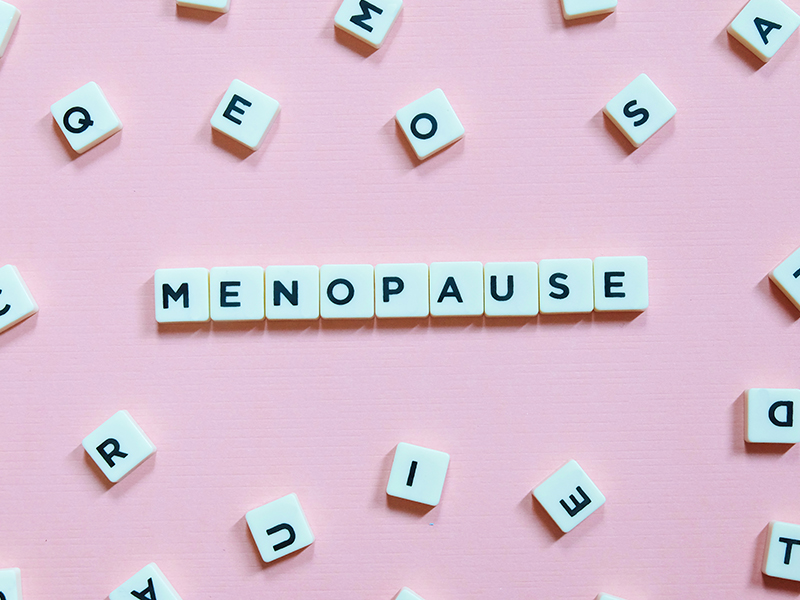It is estimated that as many as 80% of women suffer a menopause-related symptom in their lifetime, of which 25% are severe. Many suffer in silence believing that they just have to live with it. In reality, there are options for help and you don’t have to let the symptoms of menopause interfere with your way of living. DR QURATULAIN ZAIDI of Mind N Life explains how.
Early signs
It’s quite common for me to hear from women in their late 30s or early 40s that they are just not feeling right or not feeling themselves for any number of things: difficulty with sleep, lack of energy, forgetting words mid-sentence, feeling low, increased anxiety and loss of libido.
These symptoms, whether alone or combined, can have a detrimental impact on quality of life, self-confidence and relationships. Hormone levels are not often where their minds immediately turn; indeed, they’re often quite surprised when I bring it up because the age-old tale is that menopause happens to women in their 50s.

What are menopause and perimenopause?
Menopause is defined as when your period has stopped for a year and you’re no longer able to release an egg; at this time, you experience a shift in three important hormones: oestrogen, progesterone and testosterone. Endocrinologists say that it’s the fall in oestrogen that brings on most of the common symptoms experienced by women.
Perimenopause, also known as menopause transition, is the stage of a woman’s reproductive life that begins several years before menopause, as their ovaries gradually begin to produce less oestrogen. For some women, it can start as early as their late 30s – and it can last over a decade. This stage of life doesn’t arrive at the best time, often happening when women are at the peak of their careers with busy home lives and young families.
Don’t grin and bear it!
Perimenopause can mark the start of a complicated relationship with your body. Although every woman experiences menopause, research shows that medical care all over the world often fails to provide them with treatment that could alleviate their symptoms. Research also suggests that 70 to 80 percent of women experience menopause symptoms, and more than 25 percent of the time they are debilitating.
Common symptoms of perimenopause
- Loss of libido
- Migraines
- Mood changes
- Depression or anxiety
- Transient memory loss “Brain fog”
- Weight gain
- Hot flushes and night sweats
- Insomnia
- Breast tenderness
- Itchy, crawly or dry skin
- Exhaustion
- Irregular periods
- Vaginal dryness
On average, these symptoms last for seven and a half years; yet doctors often encourage women to “grin and bear it”. I was certainly told as much in Hong Kong: I was told nothing helps and I would just have to live with it. At that point, I gave up hope and thought I would never have clarity of mind again. And, while some doctors may prescribe antidepressants to help with depression symptoms, it’s nowhere near enough as it’s not treating the cause of the problem.
About HRT
In reality, there are options, and women don’t have to suffer in misery for 10 years. Hormone Replacement Therapy (HRT) – the medical replacement of oestrogen, progesterone and sometimes testosterone – is known to be the most effective medical treatment for alleviating menopause symptoms. Not only do we know in the longer term this treatment can reduce the risk of osteoporosis (which rises after menopause) and therefore the risk of bone fractures. But, most importantly, studies suggest that it prevents the onset of cardiovascular disease – one of the biggest killers of women.
So why are doctors reluctant to discuss or prescribe HRT? In 2002, the results of a large randomised trial conducted by America’s National Institutes of Health, known as the Women’s Health Initiative, showed that taking oestrogen with synthetic progesterone increased women’s risk of breast cancer, heart attacks, strokes and blood clots.
However, since 2002, we’ve learnt that the first conclusions of that trial, on which so much reluctance to HRT is still based, were almost entirely wrong. For one thing, the median age of the sample was 63 years; also, most of the women were unhealthy. Fifty percent were obese, and nearly 50 percent were current or past smokers; plus, more than a third had been treated for high blood pressure.
Long-term benefits
What the study actually showed, therefore, is that HRT is not suitable for older, unhealthy women. Re-analysis of the results also clearly show that the long-term benefits of HRT for women who are given it as they enter menopause – during their perimenopausal stage – are significant.
Of course, HRT may not be the ideal solution for everyone; the suitability of this option must be discussed with a doctor.
Take the extra step
It’s also essential to remember that, while there are medical options for women suffering through perimenopause and menopause, there are other key things you can do to enhance your quality of life at this time.
#1 Be informed and educate yourself
Being aware of what’s going on for you biologically is important; reaching out for help and knowing that you are not alone is helpful.
#2 Practice self-care
Self-care is important during this period. This can include changing your diet, looking after your emotional and physical wellbeing, exercising and managing your sleep routine well.
#3 Look at the options for psychological support
Cognitive Behavioural Therapy (CBT) is known to be an effective therapeutic treatment, and seeking help for any mental health challenges can be useful.
#4 Seek social support
Having an open and honest discussion with family members and creating a support network by reaching out to groups of women who may be going through similar challenges is helpful. It’s important to know you have options and that your quality of life can be improved significantly. However, you have to educate yourself about this stage of life. Also, you have to know the risks and benefits of the treatments that are available so you can make informed decisions.
It’s imperative to find trusted, experienced and competent professionals who will listen and guide you safely through this challenging life stage and make it easier. It’s a life stage that doesn’t have to be so hard for women – trust me, as with so much else that comes with being a woman, you don’t have to grin and bear it.
Dr Zaidi is a British-registered clinical psychologist. She works with individuals, couples and families in her private practice in Central, and as a mental health consultant for a number of NGOs and international corporations.
2521 4668 | mindnlife.com
See more in helpful tips in our Health & Fitness section.






